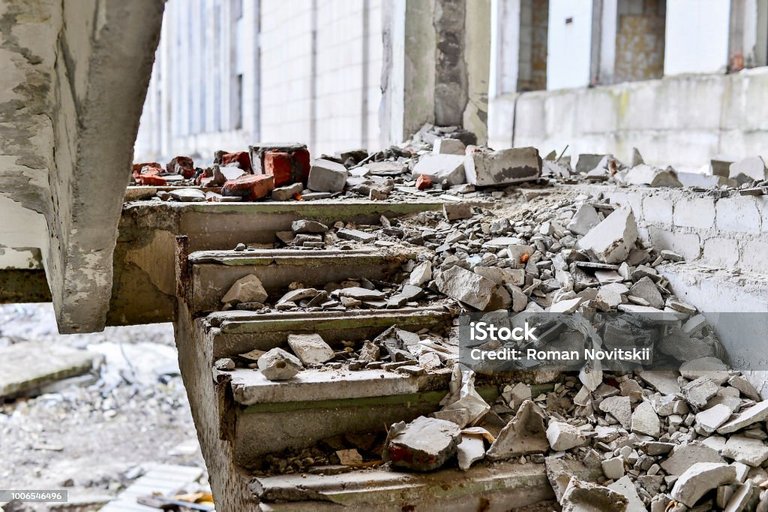Destruction is Essential to Construction: The Paradox of Progress
Even though it may seem counterintuitive, destruction can actually lead to new creation. In the construction of buildings, for example, old structures must often be demolished to make way for newer, better ones. This is also true for technological advancements, which often require the dismantling of outdated systems in order to replace them with more efficient ones. Even on a personal level, sometimes we must let go of the old in order to make way for the new. So, in many ways, destruction is actually the necessary foundation for construction.
Architectural Evolution
Many types of architecture have arisen from the destruction of previous structures. Old civilizations often left behind ruins that served as the foundation for new structures, reflecting the values and technology of their time. Urban renewal often involves the demolition of outdated buildings to make way for modern developments. This allows architects to adapt to changing societal needs, creating functional and sustainable spaces. So, in the realm of architecture, destruction is often a vital process that leads to new construction.
Technology Advancement
Just like in architecture, destruction is an important part of technological progress. Newer technologies often make older ones obsolete, prompting their dismantling or replacement. The evolution of computers and smartphones is a perfect example of this process. The deconstruction and analysis of existing technologies is also crucial for advancement, as it allows engineers to identify opportunities for improvement. So, in the world of technology, destruction is a fundamental aspect of progress.
Personal Growth and Self Transformation
Just as it is for architecture and technology, destruction is a crucial part of personal growth. Often, individuals must break down old patterns of thought or behavior to create space for new and healthier habits. This process may involve examining one's core beliefs, letting go of toxic relationships, or stepping out of the familiar and into the unknown. By embracing the uncomfortable process of destruction, individuals can create a more solid foundation for future growth and development.
Creative Destruction in Economics
Creative destruction, a term coined by economist Joseph Schumpeter, refers to the process by which new economic forces displace or replace existing ones. For example, a new technology might disrupt an existing industry and lead to its decline. This process of destruction may seem destructive in the short term, but it ultimately leads to economic progress. In the long run, it can create new jobs, boost productivity, and generate wealth.
Natural Cycles and Ecological Balance
Nature itself demonstrates the importance of destruction for construction. Forests, for example, rely on periodic wildfires to clear out old vegetation, stimulate new growth, and maintain ecological balance. The destruction caused by these fires releases nutrients into the soil, allowing for the regeneration of diverse and healthy ecosystems.
Similarly, geological processes such as erosion and volcanic activity reshape the Earth's surface, creating new landforms and geological features. These natural forces of destruction contribute to the formation of mountains, valleys, and canyons, shaping the landscape we admire today.
In Summary
Despite its negative connotations, destruction is actually an important part of creating something new and better. The cycle of destruction and construction is found throughout life, from the natural world to the human-made environment. In nature, forest fires and floods, for example, can destroy ecosystems, but they also lead to regeneration and renewal. In architecture, technology, and economics, new developments often arise from the ashes of the old. So, even though destruction may seem like an obstacle to progress, it can actually be a necessary part of the creative process.
Understanding the paradox of destruction and construction allows us to view destruction in a new light. Instead of fearing or resisting change, we can embrace it as a natural and necessary part of progress. Embracing destruction allows us to build upon the past while creating a future that is stronger and more resilient. When we are willing to break things down and start again, we open ourselves up to a world of possibilities.

Everything that is created is eventually destroyed. I think. And only that which has never been created will never be destroyed.
Destruction teaches us the transitory nature of everything physical.
But what do I know.